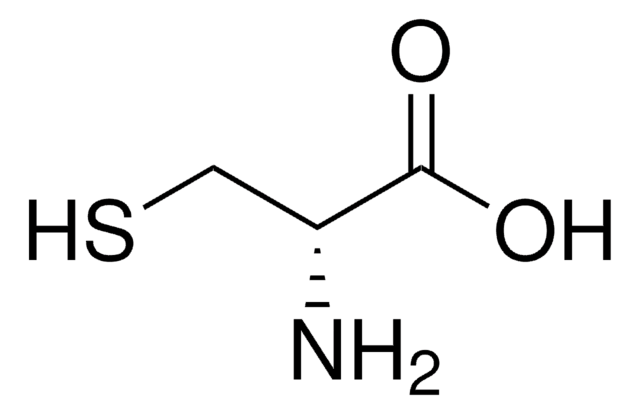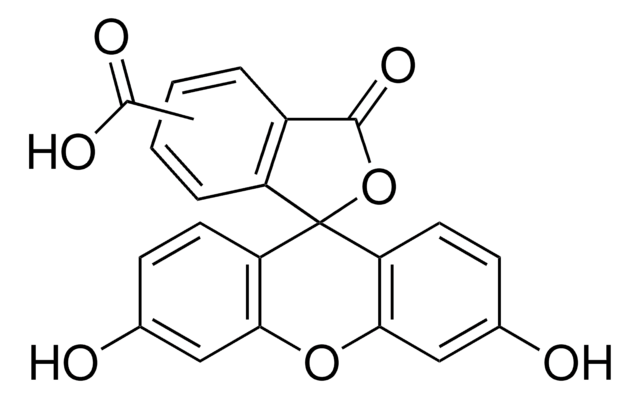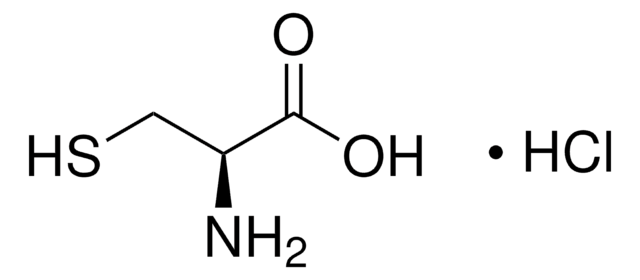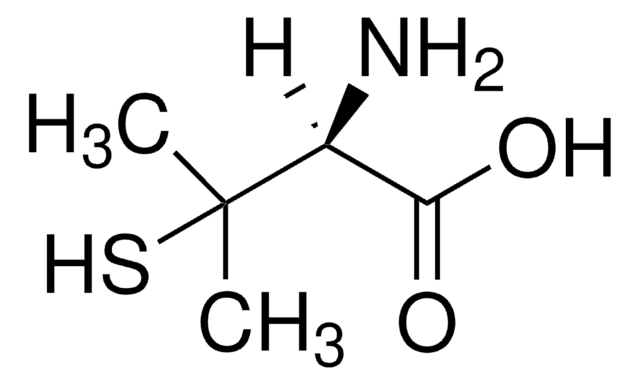C8005
D-Cysteine hydrochloride monohydrate
≥98% (TLC)
Synonym(s):
D-Cysteine hydrochloride hydrate (1:1:1)
About This Item
Recommended Products
product name
D-Cysteine hydrochloride monohydrate, ≥98% (TLC)
Quality Level
Assay
≥98% (TLC)
form
powder or crystals
color
white to off-white
mp
185 °C
application(s)
peptide synthesis
SMILES string
Cl[H].[H]O[H].N[C@H](CS)C(O)=O
InChI
1S/C3H7NO2S.ClH.H2O/c4-2(1-7)3(5)6;;/h2,7H,1,4H2,(H,5,6);1H;1H2/t2-;;/m1../s1
InChI key
QIJRTFXNRTXDIP-YBBRRFGFSA-N
Gene Information
human ... NARG2(79664)
mouse ... NARG2(93697)
rat ... LOC686240(686240) , NARG2(691379)
Looking for similar products? Visit Product Comparison Guide
Other Notes
Storage Class Code
11 - Combustible Solids
WGK
WGK 3
Flash Point(F)
Not applicable
Flash Point(C)
Not applicable
Personal Protective Equipment
Certificates of Analysis (COA)
Search for Certificates of Analysis (COA) by entering the products Lot/Batch Number. Lot and Batch Numbers can be found on a product’s label following the words ‘Lot’ or ‘Batch’.
Already Own This Product?
Find documentation for the products that you have recently purchased in the Document Library.
Customers Also Viewed
Our team of scientists has experience in all areas of research including Life Science, Material Science, Chemical Synthesis, Chromatography, Analytical and many others.
Contact Technical Service









